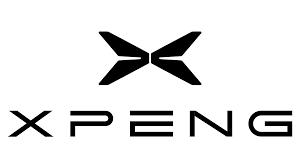Bradda Head Lithium Ltd. [TSXV-BHLI] reported further results from the phase 2 core drilling at San Domingo (SD) in Arizona. This is the third and final set of assays released from the company’s 18,950 foot (5,776m) program completed December 2, 2023 and focused on the Morning Star and Morning Star South targets, located southwest of the Central Targets. The program has delivered an abundance of encouraging results over the December holiday break.
Ian Stalker, Executive Chair, commented: “As we reach the end of this current San Domingo drilling exploration program, our objectives have been met and indeed surpassed and, as a result our expectations heightened. It is worth reflecting that total drilled metres at SD, from both programs is only 13,076 metres, covering less than 1% of the total property.
“These were the first two drilling programs of any note undertaken at this historic and road accessible lithium mining camp in the USA. In today’s world the return on investment in these two campaigns has been substantial and we will build on this as we move forward. In other words, when the Lithium market bounces back, as we believe it will, we will be ready to maximize value from our total Lithium Portfolio including of course San Domingo. The strategic location in the USA of our ‘ready to move forward projects’ should not be discounted. America remains hungry for its own home produced lithium.
“Our portfolio of pegmatites are emerging as viable and potentially extractable near surface resources. The shallow and high-grade intercepts seen at Morning Star are very exciting and we look forward to building 3-D models that may lead to follow-up drilling later this year. The abundance of tantalum, tin, and beryllium are a bonus, potentially adding value to this maiden drill programme at Morning Star. The obvious LCT (lithium-caesium-tantalum geochemical signature, e.g., Kathleen Valley signature) style of mineralisation confirms our belief that we have a formidable district with massive upside potential.
“The fact that Morning Star contains high-grade lithium as well as being rich in tantalum, beryllium, tin with massive zones of potassium feldspar means that we could have an exciting, diverse and economic deposit. We have more 3D modeling to explore and, given what we have discovered to date, this could significantly change the way we examine not only Morning Star, but the rest of the San Domingo pegmatite trend within our 33km2 property.”
Summary: High-grade lithium mineralization found at intervals such as 4.14 metres at 2.07% Li2O at a depth of 54.56 metres in drill hole SD-DH23-104 and 5.40 metres of 1.70% Li2O at a depth of 31.39 metres in 093, both at the Morning Star pegmatites (all holes are abbreviated from SD-DH23-)
Pathfinder elements of tin, tantalum (Ta2O5), and beryllium (BeO) are found to be highly anomalous in the drilling, such as 6.76 metres at 145 ppm Sn in hole 100, 872 ppm Ta2O5 with 0.23% BeO in drill hole SD-DH23-088 over 2.90m
Morning Star drill hole 088 contains high-grade Ta2O5 with an interval of 872 ppm Ta2O5 ppm and anomalous tin over 2.90 metres at a depth of 39.26 metres and 477 Ta2O5 ppm over 5.34 metres at 75.74 metres depth.
Lithium, plus the bonus of ore grade Ta2O5 with discrete anomalous tin and BeO in the Morning Star drill holes in a shallow environment, bodes well for the potential of open cut mining.
Results from the Morning Star and South Morning Star targets are highlighted by the following intervals: 4.14m at 2.07% Li2O in drill hole 104 at Morning Star; 5.40m of 1.70% Li2O followed by 4.18m of 1.63% Li2O (within 14.63m at 0.54% Li2O) plus 0.67m of 1.21% BeO, all above 55.93m depth in drill hole 093 at Morning Star; 5.55m of 1.03% Li2O in hole 099 at South Morning Star; 6.67m at 0.82% Li2O in drill hole 100 at South Morning Star; 2.01m at 1.84% Li2O in drill hole 091 at Morning Star; 2.80m at 0.65% Li2O in drill hole 090 at Morning Star; Morning Star surface samples of 4.35% and 3.67% Li2O above holes 093 and 104 highlight open pit potential; wide-open potential >100m depth, virtually unexplored by this second program and presents impressive opportunities district wide.
Drilling at Morning Star, located 1.0km southwest of the Central Targets, commenced in late October with holes 088 through 098 and 104 for a total of 12 holes totalling 2,159m. Notably, two surface samples near the collars of 093 and 104 returned 4.35% and 3.67% Li2O, highlighting the potential connectivity with the subsurface drill hole samples and open cut potential.
Ta2O5 is highly anomalous at Morning Star, occurring with or without lithium mineralization such as in hole 088 where there is 2.90m of 872 Ta2O5 ppm with 0.46% Li2O and 0.23% BeO including 1.13m of 2,220 Ta2O5 represented as fine grained tantalite in drill core.
Bradda Head Lithium has interests in a variety of projects, the most advanced of which are in Central and Western Arizona: The Basin Project (Basin East Project, and the Basin West Project) and the Wikieup Project.
The Basin East Project has an Indicated Mineral Resource of 17 Mt averaging 940 ppm Li and 3.4% K for a total of 85 kt LCE and an Inferred Mineral Resource of 210 Mt at averaging 900 ppm Li and 2.8% K (potassium) for a total of 1.09 Mt LCE.
The Group intends to continue to develop its three phase one projects in Arizona, whilst endeavouring to unlock value at its other prospective pegmatite and brine assets in Arizona, Nevada, and Pennsylvania. All of Bradda Head’s licences are held on a 100% equity basis and are in close proximity to the required infrastructure.




